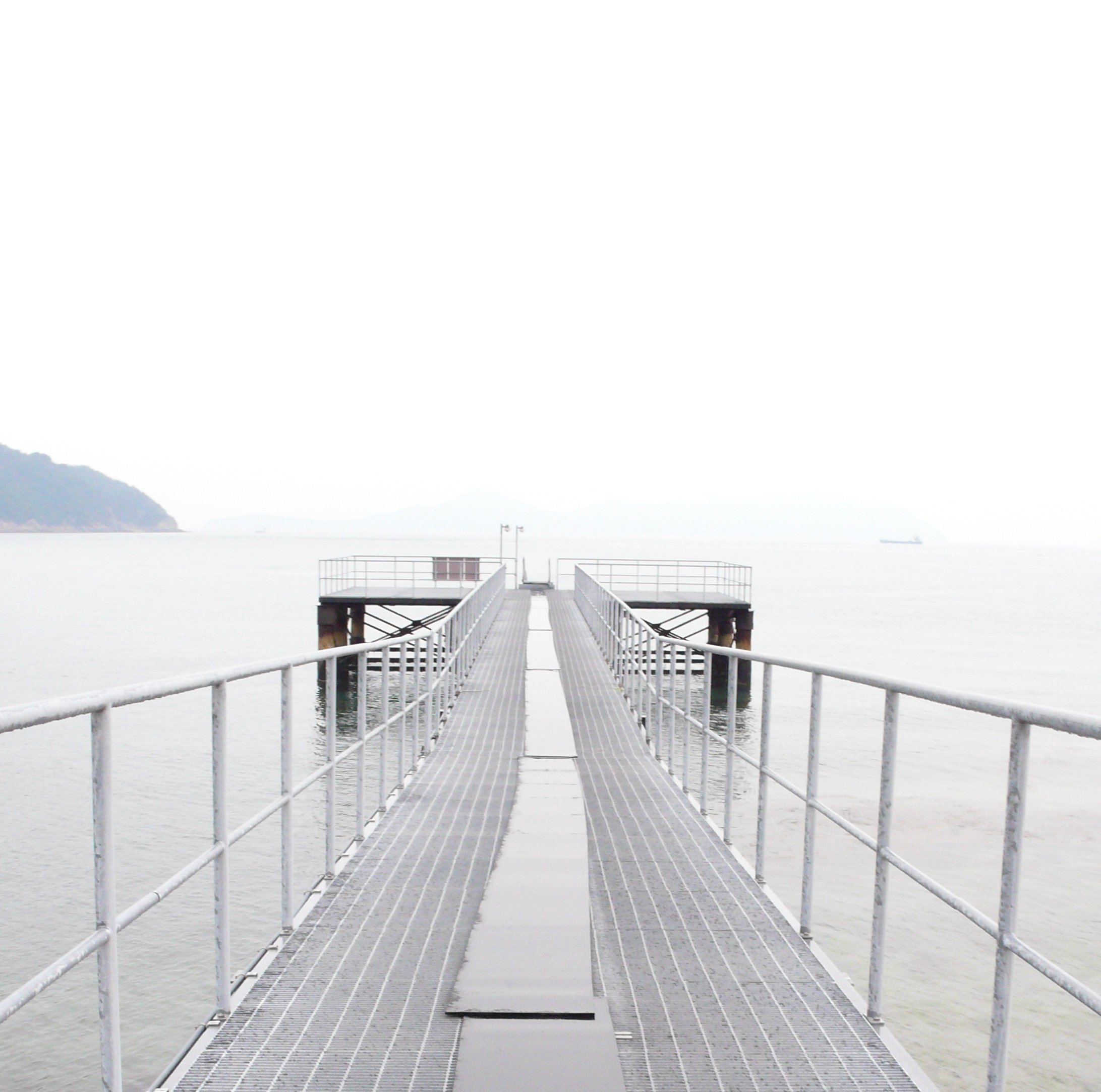Naoshima, 2007
DAYS OF DISCONNECT
On How to Get Rid of Your Children Responsibly and Survive Parenticide.
They stood out like a sore thumb. Both were dressed identically: Converse sneakers, blue jeans, tailor-made white shirts, and a gray cashmere sweater that hung over their shoulders. And as if that weren't enough, they were the only Europeans on board the 5 p.m. ferry that arrived at the port of Takamatsu. At just 14 and 16, they towered over the other passengers. The breeze tousled their blond hair as they walked off the ramp onto the quay, their faces like thunder.
Earlier in the day, we had left them behind on Naoshima Island. We told them to sort everything out by themselves and catch up with us on Shikoku once they were done. Despite everything, we behaved like respectable parents; we gave them money for lunch and told them where to catch the ferry.
They saw things differently.
They had parenticide on their minds.
Chichu Art Museum, Naoshima, 2007
Our Japanese business partners had looked at us in stunned silence when we told them we'd spend a week on Shikoku and the islands in the Seto Inland Sea. Anything beyond the hot springs of Hakone or Fuji-san was considered exotic.
We were expected to spend time shopping in Tokyo or discover whatever was left of ancient Japan in Kyoto, then return home. Naoshima simply wasn't on their map, let alone Higashi-iya, deep in the mountains of Shikoku. This was an unconnected Japan, far from any Shinkansen or mobile phone access. A Japan that—embarrassingly—might not meet our expectations. But it did.
Still mesmerized by James Turrell's Backside of the Moon, we noticed that Henri's backpack was missing. We had spent 15 minutes at the Minamidera House to get over the ruthless impact of total darkness and serenely—as if bewitched—witness a single shape emerging out of the black. For a moment, the banality of tangible objects existed in a universe we weren't part of.
Takamatsu, 2007 - Isamu Noguchi Garden Museum.
But missing passports and airline tickets booted us right back into the harshness of reality.
Backpacks don't get lost in Japan. They are found, cared for, and respectfully returned to the owner. Even if they don't speak a word of Japanese, adolescents don't get lost on Naoshima either. That's what we assumed.
As the two of us were visiting Isame Noguchi's atelier in Takamatsu that afternoon, we weren't so sure anymore if we had acted responsibly.
They were not among the first to leave the ship. Neither of us said a word until they disembarked.
Tokyo, 2007
Their feeling of parenticide had subsided.
The event became one of the hero stories they share with friends: "When we were kids, our parents abandoned us on an island in Japan."
Not the worst of opening statements.
Once their audience is hooked, they explain how they found the backpack, counted their money, and spent it on an extraordinary lunch of somen noodles. While they were sitting cross-legged on a tatami at the best restaurant of the island, we were eating our bento meal in utter silence, freaking out.
Tokyo, 2007





